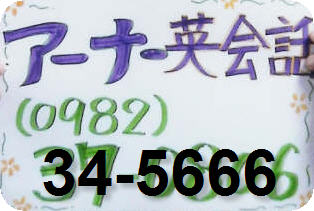|
| Make certain that we are at ease in Nobeoka. |
|
|
| Make introductions to us in Nobeoka. |
| You are invited to dinner in Nobeoka. |
|
|
| Nobeokers know nothing about their hearts. |
| We do just as we please in Nobeoka. |
|
|
| There are some real selfless friends in Nobeoka. |
| Don't be too hard on Nobeokers. |
|
|
| Nobeokers are not most troublesome. |
| Some of us do the two-step in Nobeoka. |
|
|
| Nobeoka Woods |
| I say Nobeoka is beautiful |
|
|
| Keiko Ahner is from Nobeoka. |
On the Treasure Tower
I have read your letter with great care. I have also received your offering to the Treasure Tower of one kan of coins,
polished rice and other articles. This I have respectfully reported to the Gohonzon and to the Lotus Sutra. Please rest assured.
In your letter you ask: "What is signified by the Treasure
Tower, where Taho Buddha was seated, appearing from within the earth?" The appearance of this bejeweled
stupa [in the eleventh chapter of the Lotus Sutra] is of great importance. In the eighth volume of his Hokke Mongu, the Great
Teacher T'ien-t'ai explained the appearance of the Treasure Tower. He states that it had two distinct functions: to lend credence
to the preceding chapters and to pave the way for the revelation to come. Thus, the Treasure Tower appeared in order to verify
the theoretical teaching and to introduce the essential teaching. To put it another way, the closed Tower symbolizes the theoretical
teaching and the open Tower, the essential teaching. This represents the two principles of object (kyo) and subject (chi),
or reality and wisdom. However, this is extremely complex, so I will not go into further detail now. In essence, the appearance of the Treasure Tower indicates that the three groups of Shakyamuni's
disciples attained enlightenment only when they heard the Lotus Sutra and perceived the Treasure Tower within their own lives.
Now Nichiren's disciples are doing the same. In the Latter Day of the Law, there is no Treasure
Tower other than the figures of the men and women who embrace the Lotus Sutra. It follows, therefore, that those who chant Nam-myoho-renge-kyo, irrespective of social status, are themselves the Treasure
Tower and likewise they themselves are Taho Buddha. There is no Treasure Tower other than Myoho-renge-kyo.
The daimoku of the Lotus Sutra is the Treasure Tower, that is to say, the Treasure Tower is Nam-myoho-renge-kyo.
Now the entire body of Abutsu Shonin is composed of the five universal elements of earth, water, fire, wind and ku. These
five elements are also the five characters of the daimoku. Therefore,
Abutsu-bo is the Treasure Tower itself, and the Treasure Tower is Abutsu-bo himself. No other knowledge
is purposeful. It is the Treasure Tower adorned with seven kinds of gems - listening to the true teaching, believing it, keeping
the precept, attaining peace of mind, practicing assiduously, unselfishly devoting oneself, and forever seeking self improvement.
You may think you offered gifts to the Treasure Tower of Taho Buddha, but that is not so. You offered them to yourself. You, yourself, are a true Buddha who possesses the three enlightened properties.
You should chant Nam-myoho-renge-kyo with this conviction. Then, the place wherein you dwell and
chant daimoku is the place of the Treasure Tower. The sutra reads: "Wherever
one teaches the Lotus Sutra, this Treasure Tower of mine will rise and appear before him." Faith
like yours is so extremely rare that I will inscribe the Treasure Tower especially for you. You should never transfer it to
anyone but your son. You should never show it to others unless they have steadfast faith. This is the reason for my advent
in this world.
Abutsu-bo, you deserve to be called a leader of this northern province. Could it be that Bodhisattva Jyogyo was reborn
into this world as Abutsu-bo and visited me? How marvelous! It is beyond my power to understand why you have such pure faith.
I will leave it to Bodhisattva Jogyo when he appears, as he has the power to know these things. I am not saying all this without
good reason. You and your wife should worship this Treasure Tower privately. I will explain more later.
With my deep respect,
Nichiren
The thirteenth day of the third month in the ninth year of Bun'ei (1272)
|

